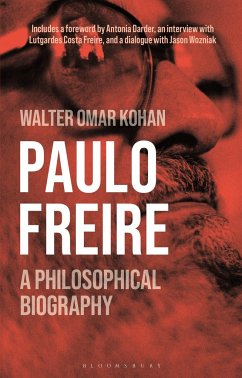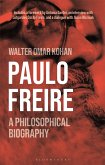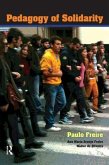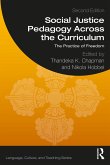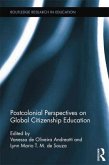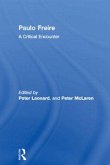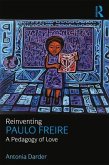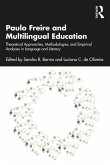Paulo Freire (1921-1997) is one of the most widely read and studied educational thinkers of our time. His seminal works, including Pedagogy of the Oppressed, sparked the global social and philosophical movement of critical pedagogy and his ideas about the close ties between education and social justice and politics are as relevant today as they ever were. In this book, Walter Omar Kohan interweaves philosophical, educational, and biographical elements of Freire's life which prompt us to reflect on what we thought we knew about Freire, and also on the relationship between education and politics more broadly. It offers a new and timely reading of Freire's work and life. The book is structured around five key themes that provide a new perspective on Freire's work: life, equality, love, errantry and childhood. It includes a contextualization of Freire's work within the past and current political terrain in Brazil, and encourages educators to put themselves and their educational work into question by highlighting some of Freire's lesser known thoughts on time. The book also includes a conversation with Lutgardes Costa Freire, Paulo's Freire's youngest son, a dialogue with the co-founder of the Latin American Philosophy of Education Society, Jason Wozniak (West Chester University, USA), and a foreword by the renowned Freirean scholar and activist Antonia Darder (Loyola Marymount University, USA).
Hinweis: Dieser Artikel kann nur an eine deutsche Lieferadresse ausgeliefert werden.
Hinweis: Dieser Artikel kann nur an eine deutsche Lieferadresse ausgeliefert werden.
Kohan has succeeded in the task of presenting very original ideas about the often taken-for-granted Freirean repertoire ... [He] concludes his book with examples and practical suggestions for experimenting with his five Freirean philosophical principles that every educator with enough courage to re-invent their pedagogical model could implement. International Review of Education

